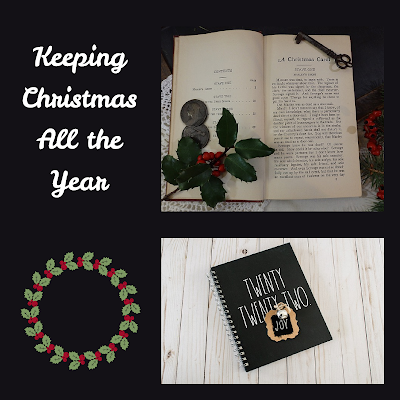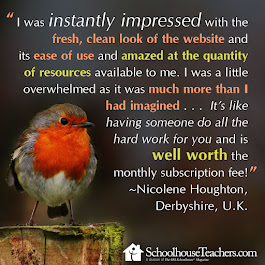This post contains affiliate links - using affiliate links from HS Coffee Break helps fuel this blog.
For the past few years I have been teaching high school writing in our homeschool tutorial co-op. Having seen several groups of students through the courses, I've noticed some issues and questions coming up regularly. I hope these Tip Sheets will be helpful to my students, their parents, and perhaps to other students and parent/teachers as well.
**********
The theme of this post is themes. In studying literature, we sometimes try to identify the author's theme in a story or novel, and explore how the author used the elements of the story to highlight that idea. In creative or fiction writing, we need to have a theme to build the story upon. Some students confuse theme and plot, or confuse plot with story synopsis, and then just get confused! And they are all related, but for this article, we'll stick to talking about themes, and mostly from the perspective of writing rather than literature study.
Very simply put, the theme is the main idea and what the story is about, and the plot is what happens in the story. Just like a paragraph needs a topic sentence and an essay needs a thesis statement, a theme is the unifying idea that the story is built around. Aesop's fables are examples of simple and obvious themes. There's a little moral or lesson that you are to learn from the story, and the characters and plot are designed to highlight that idea so that even if the fable didn't end with an outright statement of the moral, you could probably figure it out. Of course, most novels and short stories aren't quite that open and obvious, and that's why there can be lively discussions in Literature class about what an author is trying to say.
You can't tell any kind of a story without having some kind of a theme, something to say between the lines. ~Robert Wise
There are two main types of themes in fiction writing. First is a "message" type of theme, which could be sort of like the life lessons of the fables, or could be sort of a statement about what the world is like or what people are like. The theme of The Lorax by Dr. Seuss might be stated as: It's important to take care of the environment. That's a lesson and a statement about the world. In Horton Hears a Who, the main character states the theme over and over again. "A person's a person, no matter how small." The theme of Beauty and the Beast might be something like: Beauty is more than skin deep. In each case, the setting, characters, and events are all carefully chosen to highlight the theme.
In her textbook Writing Fiction in High School, Sharon Watson says that some readers would identify the message in Herman Melville's Moby Dick as: "Forget about looking for happiness. Even if you find it, it will only destroy you." This is a theme that's not stated outright in the story, but it seems like the obvious conclusion to be drawn from all the events of the story.
You don't write because you want to say something, you write because you have something to say. ~F. Scott Fitzgerald
The other main kind of theme is an exploration of a topic. In this type of theme, there's not an obvious conclusion or lesson, but the story seems to keep looking at an idea from different angles. In The Great Gatsby by F. Scott Fitzgerald, the ideal of the American dream is explored, and the ways in which the dream has gone wrong. Justice is one of the main themes of To Kill a Mockingbird by Harper Lee.
Think about the Disney/Pixar movie WALL●E. What are some possible themes in this movie? When I've taught the fiction writing class at co-op, we've watched this movie in class and the students had to write a couple of paragraphs about what themes they identified in the movie. Students have made cases for varying themes, such as:
-personal responsibility
-conservation and caring for the environment
-the dangers of consumerism and materialism
-protecting and preserving life
-how love is related to responsibility
-having a purpose in life
-relationships and personal connections
And you thought it was just a cute and entertaining movie! We were able to identify all of those themes by taking notice of symbols and imagery, and that these ideas seemed to come up over and over again. These are all the literary devices and techniques used in storytelling, but when we discuss how they communicate the theme of a story, we call them thematic elements.
Full-length movies and novels can have several themes, but short stories usually have only one, so students working on high school writing assignments should generally try to focus on only one theme in a short story or scene for class.
How To Build Your Story's Theme
Your assignment is to write a short story or a scene for your Creative Writing class and you know it needs to be based on a theme. Whether or not you have a specific theme in mind when you start your story, you'll probably gravitate towards one as you create the conflicts and tension the story needs. But if the theme isn't clear to you, it may not be clear to your readers either.
Focus on your theme and make sure your story focuses on it as well. If you've got a story but aren't sure of the theme, examine what you've started with and see what idea or value it seems to center around. How are you trying to portray the lead character? What is at the heart of the lead's conflict? If you're writing a story in which a detective keeps digging at a cold case until he solves it, perhaps perseverance is your theme. Adjust your descriptions, dialogue, symbols, and motif so that the characteristic of perseverance is highlighted. Consider trimming out events or situations that aren't related to the theme and distract from it.
Start with a theme and build a story from it. Sometimes you'll want to make an observation about life or explore an idea you find interesting, so you have a theme already. Then you might need to figure out the best characters and conflict to put into your story. So if you'd like to write a story around the theme of being loyal to family, think about what kind of character and situation would set the stage. Maybe it's a college student who has to choose whether to go on a fun trip with friends on spring break or go home to help a parent who has just had a health crisis.
If you've studied themes as part of a literature class, you might be familiar with some of the most common themes in novels. When you're stumped for a theme to start with, or which theme your story idea might fit, take a look at some of best-known for help. You can see a list and get more info at A Guide to Themes in Writing and Literature at Grammarly. The list includes: Loyalty, Betrayal, Justice, Family, and Good vs. Evil. There are variations on all of them, of course!
Since it is so likely that (children) will meet cruel enemies, let them at least have heard of brave knights and heroic courage. ~C.S. Lewis
Fairy tales are more than true; not because they tell us that dragons exist, but because they tell us that dragons can be beaten. ~G.K. Chesterton
Choose story elements to highlight the theme. Imagery and symbols or motifs can be very useful story elements that enhance theme. Willa Cather uses birds throughout O Pioneers! in various ways. Migrating ducks symbolize hard work, and seagulls represent people who don't seem to belong on the prairie, for instance. In WALL●E, we noticed quite a few references to a "prime directive" that each of the robots had, and that each robot character faithfully did what they were supposed to do. In contrast, the humans had no directive other than to sit back and let the automated systems do everything for them. When a couple of the human characters found something important to do, they seemed much happier and more human. This was the theme of the importance of purpose and meaning in life. Even the choice of names for your characters and places can be thematic elements.
Avoid being preachy or too obvious about your theme. Unless you're purposely writing in Aesop's fable or parable lesson style, you probably don't want your theme to hit the reader between the eyes. Your theme can be stated outright in the story, but be careful where you place it. A good place is in dialogue or in the lead character's thought process during a point of high tension or meaning. Sort of like when Belle realizes that she genuinely loves the Beast at the moment when he is in the greatest danger. On the other hand, if you've used the action and thematic elements well, your story can speak for itself through the conflicts and characters.
**********
Some of this article is based on information in the wonderful textbook Writing Fiction [In High School] from Writing with Sharon Watson. This textbook is the one I've taught from in the co-op for several years, and I highly recommend it.
**********
Don't miss a coffee break! Subscribe to HS Coffee Break by email
©2006-2022 HS Coffee Break. All rights reserved. All text, photographs, artwork, and other content may not be reproduced or transmitted in any form without the written consent of the author. http://kympossibleblog.blogspot.com/
We are a participant in the Amazon Services LLC Associates Program, an affiliate advertising program designed to provide a means for us to earn fees by linking to Amazon.com and affiliated sites.















































0 comments:
Post a Comment
I love comments! It's like visiting over a virtual cup of coffee.